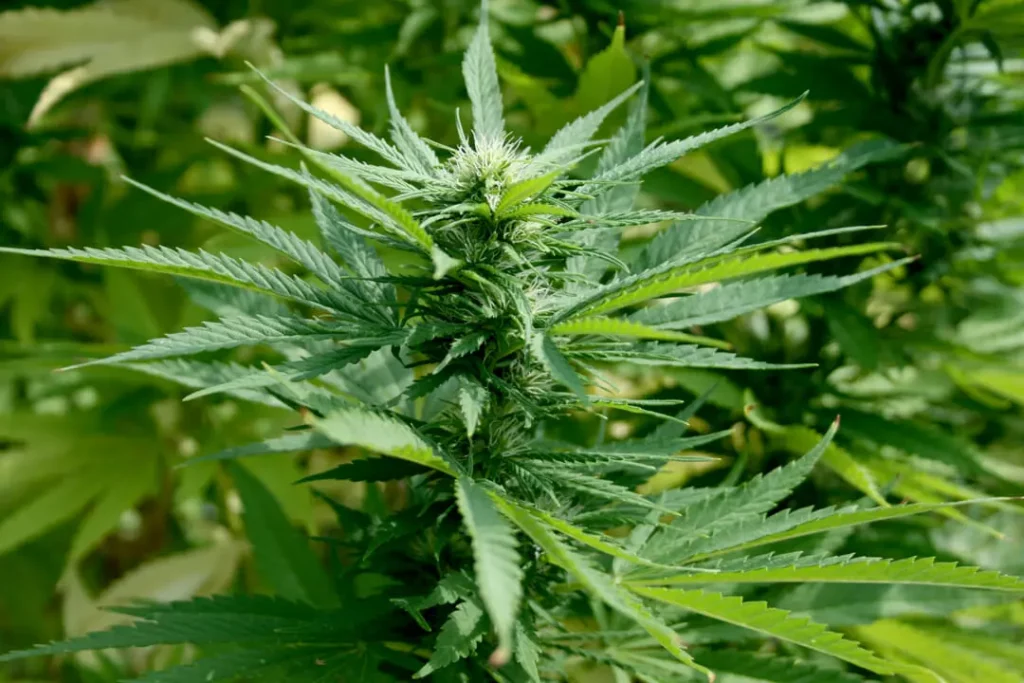Table of Contents
Marijuana is also known as cannabis or weed among other names. This is a psychoactive drug from the cannabis plant. Marijuana has been used as a drug for both recreational and entheogenic purposes and in various traditional medicines for centuries.

Before we go to the health effects of marijuana, here is a brief introduction. According to the Monitoring the Future poll, marijuana use among middle and high school students has stayed consistent over the past year.
Still, the proportion of kids in grades eight and ten who report using it daily has increased.
In addition, teenagers vaping THC (the component of marijuana that causes the high), are approximately 4% of students in the 12th-grade report doing so every day because of the rising popularity of vaping devices.
Also, the proportion of teenagers who think frequent marijuana use is harmful is declining.
After alcohol and tobacco, marijuana is the addictive substance that is used most frequently.
What is Marijuana?

The dried flowers, leaves, stems, and seeds of the cannabis plant are referred to as marijuana, which is also known as cannabis, weed, pot, or dope.
Interestingly, over 100 chemicals are present in the cannabis plant (or cannabinoids).
These substances include the intoxicating or mind-altering tetrahydrocannabinol (THC) and other active substances like cannabidiol (CBD). Since CBD does not impair, it does not result in a “high.”
Also, the cannabis plant can make extracts (see “Marijuana Extracts”).
The most legally prohibited drug in the United States is marijuana, with about 48.2 million users in 2019.
The usage of marijuana may have a variety of negative impacts on the body and brain’s health.
The following are a few of the most typical adverse effects of cannabis consumption on physical health:
1. When someone smokes tobacco, they have a greater chance of bronchitis.
2. When one smokes it, they produce more phlegm.
3. bronchial irritation
4. Trusted Source of irritants, some carcinogenic, such as smoking and unintentionally burning the mouth or throat.
5. A compromised immune system brought on by tetrahydrocannabinol, the primary psychotropic component of cannabis.
6. Pain reduction.
7. Decrease in nausea and vomiting.
8. Heartbeat 20–50 beats per minute fast, dependable Source.
9. For a while, the red eyes caused by increased blood flow provide glaucoma symptom alleviation.
10. Smoking can make pre-existing lung problems, including asthma, worse.
11. Possible interference with fetal development during pregnancy and possible interference with tumor growth.
12. Interference with adolescent brain development.
Effects of Marijuana
In Respiratory System
Cannabis smoke contains several harmful compounds, including ammonia and hydrogen cyanide, which can irritate your bronchial airways and lungs, just like tobacco smoke.
Regular smokers are more prone to cough, wheeze, and generate phlegm. Additionally, you have a higher chance of getting lung infections and bronchitis. Asthma and cystic fibrosis are two respiratory conditions that cannabis may make worse.
The toxins found in cannabis smoke have the potential to raise your chance of developing lung cancer.
However, there is no solid evidence that cannabis smoking causes lung cancer.
In Circulatory System
THC circulates throughout your body after leaving your lungs and entering your bloodstream. Your heart rate could rise by 20 to 50 beats per minute in a matter of minutes. Dependable Source Up to three hours can pass during that period of a fast heartbeat.
Your heart must work harder to supply more oxygen as a result. This could increase your heart attack if you already have heart problems.
Bloodshot eyes are one of the clear indicators of recent cannabis use. Cannabis makes blood vessels enlarge and fill with more blood, giving the eyes a reddish appearance.
THC can lower eye pressure, temporarily reducing glaucoma symptoms. More research is required to determine whether THC can help glaucoma in the long run.
In Central Nervous System
Cannabis has impacts on the entire central nervous system (CNS). Cannabis is believed to reduce pain and inflammation and help with seizure and spasm management. However, there may be detrimental long-term effects on the CNS to consider.
THC causes the brain to release a lot of dopamine, a substance that makes you feel happy naturally. It is what causes you to feel good. Your sensory awareness and sense of time may both be enhanced.
Another explanation for the up to 30% of cannabis users who develop cannabis use disorder is the dopamine cycle. Although it may be rare, severe cannabis use disorders or addiction can happen.
Cannabis health effects of marijuana include:
1. Irritability
2. Insomnia
3. Reduced appetite
THC alters how you process information in the hippocampus, leading to poor judgment. Since the hippocampus is in charge of memory, getting high might make it challenging to create new memories.
The cerebellum and basal ganglia change. These brain regions are involved in balance and movement. Cannabis may affect your reaction response, coordination, and compensation. Because of all those changes, driving is not safe.
Highly high cannabis doses or THC concentrations can bring hallucinations and delusions on. Cannabis usage and certain mental health disorders like depression and anxiety may be related, according to the NIDATrusted Source.
If you have schizophrenia or family history, stay away from cannabis. Cannabis may exacerbate symptoms or increase the likelihood that someone with a genetic predisposition may develop the disorder.
You might feel worn out or melancholy after the high wears off. Cannabis can make some people anxious.
In Digestive System
When you inhale after smoking marijuana, one of the health effects of marijuana is that you can experience stinging or burning in your mouth and throat.
When ingested, cannabis can upset the stomach. THC has been demonstrated to reduce nausea and vomiting, but strangely, long-term heavy use can reverse this effect in some people.
Any form of THC can cause an increase in hunger, a typical side effect known as “the munchies.”
This may be advantageous for those who need to put on weight or enhance their appetite, like cancer patients getting chemotherapy.
Those trying to lose weight could view this impact as a drawback. However, epidemiological studies and trusted Source show cannabis users don’t have a higher risk of diabetes or obesity than nonusers.
In Immune System
Animal studies have demonstrated that THC may negatively impact the immune system by inhibiting it.
Theoretically, one of the health effects of marijuana is that it could increase your susceptibility to infectious infections.
However, this might be advantageous for those who have autoimmune diseases and an overactive immune system.
To wrap up this article, more research, including human research, is required to comprehend the impacts properly.
SEE ALSO:
Am I Affected by Bipolar Disorder?
Get enough rest – Sleep better to stay healthy
Why You Need To Drink Lemon Water: 10 Health Benefits
Optimal Times for Water Consumption to Enhance Health
Leave a Reply